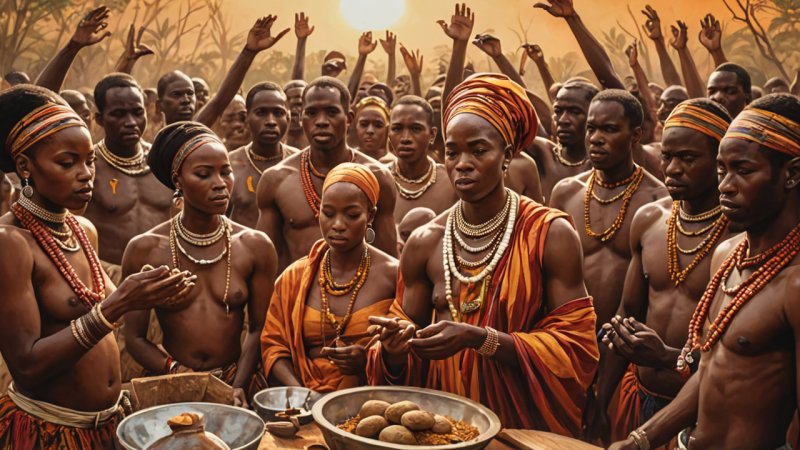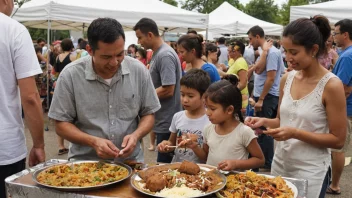African traditional religions are rich, diverse, and deeply woven into the cultural fabric of the continent. Among their myriad beliefs and practices, spirituality plays a pivotal role, influencing everything from daily life to social structures. This article will compare and contrast the role of spirituality within various African traditional religions, highlighting key similarities and differences, as well as the implications of these spiritual practices for the communities that uphold them.
Understanding African Traditional Religions
African traditional religions encompass a multitude of belief systems and practices that vary significantly across different regions and ethnic groups. What they share, however, is a deep-rooted spiritual connection to the world around them. This includes a belief in a supreme deity, ancestral spirits, and the interconnection of all living things. Spirituality in these traditions is not merely a personal journey but a communal one, emphasizing the importance of family, community, and the environment.
Spirituality and Belief Systems
In examining the role of spirituality, it is crucial to understand the core belief systems that inform these religions. For instance, in the Yoruba tradition of Nigeria, spirituality is expressed through the worship of Orishas—divine spirits that govern various aspects of life. In contrast, the Akan people of Ghana emphasize ancestral worship, where the spirits of ancestors are revered and consulted for guidance. While both traditions acknowledge a higher power, the means of engaging with that spirituality diverge significantly.
Pros and Cons of Spiritual Practices
Spiritual practices within African traditional religions offer numerous benefits, but they also present challenges. Below, we will explore the pros and cons associated with these spiritual practices in two distinct contexts: communal rituals and personal spirituality.
Communal Rituals
- Pros: Communal rituals strengthen social bonds, foster a sense of belonging, and provide a collective identity. They often involve music, dance, and storytelling, which enhance community cohesion.
- Cons: The pressure to conform to communal practices can be stifling for individuals who may hold personal beliefs that diverge from the majority. Additionally, communal rituals can sometimes lead to exclusion or discrimination against those who do not participate.
Personal Spirituality
- Pros: Engaging in personal spirituality allows individuals to explore their beliefs in a way that is meaningful to them. It can foster personal growth, self-awareness, and healing.
- Cons: A focus on personal spirituality may lead to a detachment from communal practices, weakening the social bonds that are essential to many African traditional religions.
Spirituality and Daily Life
The influence of spirituality extends beyond rituals and belief systems; it permeates daily life in various ways. In many African societies, spirituality is intertwined with social customs, health practices, and even governance. For instance, in the Zulu culture of South Africa, the concept of Ubuntu emphasizes the interconnectedness of individuals within the community, which is a spiritual principle that guides social behavior.
Health and Healing
In many African traditional religions, spirituality is closely linked to health and healing practices. Healers or shamans often act as intermediaries between the spiritual and physical worlds, using rituals and herbal remedies to address both physical ailments and spiritual imbalances. This holistic approach to health recognizes the importance of spiritual well-being in achieving overall health.
Challenges and Modern Influences
Despite the resilience of African traditional religions, they face numerous challenges in the modern world. The influence of globalization, urbanization, and missionary religions can lead to a dilution of traditional beliefs. Many younger generations are drawn to other faiths or secularism, which can result in a generational gap in spiritual practices.
Adaptation and Survival
In response to these challenges, many African traditional religions are adapting. Some communities are integrating traditional beliefs with modern practices, creating hybrid forms of spirituality that resonate with younger audiences. This adaptability is crucial for the survival of these religions, as they continue to evolve in the face of changing social landscapes.
Conclusion
The role of spirituality in African traditional religions is multifaceted and deeply ingrained in the cultural identity of various communities. While there are significant differences in how spirituality is expressed across different traditions, the common thread of interconnectedness is a powerful unifier. As these religions navigate modern challenges, their ability to adapt while retaining their core spiritual essence will determine their future relevance. Ultimately, a deeper understanding of these spiritual practices can enrich our appreciation of Africa's diverse cultural heritage.






